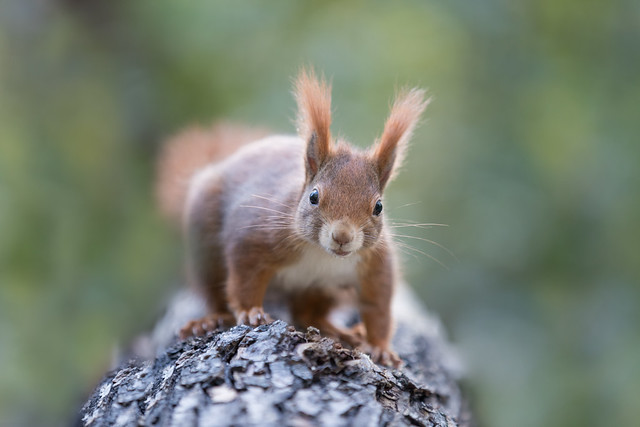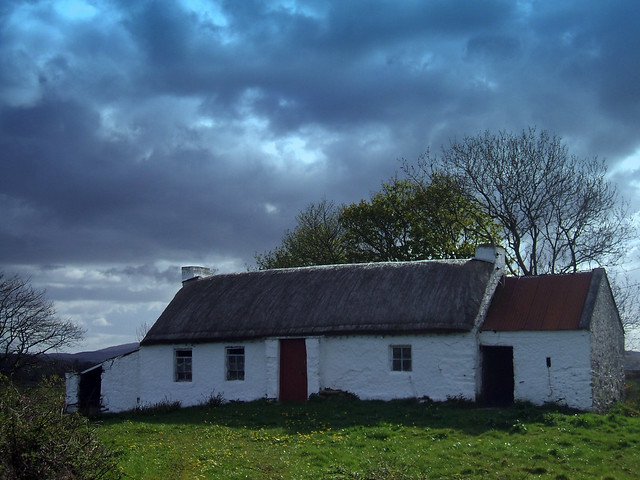Words for seed and related things in Celtic languages.
Words marked with a * are reconstructions.
| Proto-Celtic | *sīlom = seed |
|---|---|
| Old Irish (Goídelc) | síl [sʲiːl] = seed, cause, origin, semen, race, progency, descendants, offspring, breed |
| Middle Irish (Gaoidhealg) | síl = seed, race, progency, descendants, offspring, breed, sílach = seed sílaid = to sow spread, breed, sower sílaige = disseminator, one who propagates sílaigthid = sower sílem = sower sílne = seed, sperm |
| Irish (Gaeilge) | síol [ʃiː(ə)l̪ˠ] = seed, semem, sperm, offspring, progeny síolach = seedy síoladóir = seedsman, sower, disseminator síoladóireacht = (act of) seeding, sowing síoladaí = disseminator, propagator síolaicme = race, breed síolaigh = to seed, sow, disseminate, spread |
| Scottish Gaelic (Gàidhlig) | sìol [ʃiəl̪ˠ] = seed, sperm, descendants, progency, line, lineage, increase sìolach [ʃiə̪ˠəx] = breed, brood, offspring sìolachadh [ʃiəl̪ˠəxəɣ] = (act of) sowing seed, reproducing, propagating, breeding sìoladair [ʃiəl̪ˠədɪrʲ] = seedsman, sower sìolag [ʃiəl̪ˠag] = seedling, strainer sìolaiche [ʃiəl̪ɪç] = propagator |
| Manx (Gaelg) | sheel = seed, sperm, sheelag = seedling sheelagh = seedy, fruitful, seminal sheeleyder = seedsman, distiller, dribbler, refiner sheelraghey = to breed, propagate, breeding |
| Proto-Brythonic | *hil = race, lineage |
| Middle Welsh (Kymraec) | hil = seed, issue, offspring, progeny, descendents hiliad = producing, generation, propagation hylyo, hilyo = to bring forth, breed, beget |
| Welsh (Cymraeg) | hil [hiːl] = seed, issue, offspring, progeny, descendents, posterity, stock, lineage, race hiliad = producing, generation, propagation, procreation, progency, lineage, offspring hiliaeth = generation, progeny, lineage hilio = to bring forth, breed, beget, propagate, increase, populate hiliog = prolific, fruitful, fecund, fertile, pregrant hiliogaeth = issue, offspring, seed, breed, race, posterity, descendants, lingeage hiliwr, hilydd = racist |
| Cornish (Kernewek) | hil = ethnicity, race hilegydh(es) = racist hilgasieth = racism |
| Breton (Brezhoneg) | hil = seed, posterity hilian, hiliañ = to procreate |
Etymology: from Proto-Indo-European *seh₁- (to sow, plant, impress, insert) [source].
Words from the same PIE root include earn, season, seed, seminar and sow in English, säen (to sow) in German, siać (to spread, leave smth and forgot its location) in Polish, and sēt (to sow) in Latvian [source].
| Proto-Celtic | *satos = seed |
|---|---|
| Proto-Brythonic | *had = seed |
| Middle Welsh (Kymraec) | hat, had = seeds hadv, hadu = to bring forth or produce seed |
| Welsh (Cymraeg) | had [haːd] = seeds, origin, source, bit, mite hadaf, hadu = to bring forth or produce seed, grow seed, multiply, become fruitful, run to seed, sow, propagate hadaidd = having seed, seedy, running to seed hadblanhigyn = seedling hadfa = seed-plot, nursery-garden hadle = seed-plot, nursery, seminary, school |
| Middle Cornish (Cernewec) | has, hâs = seed |
| Cornish (Kernewek) | hasa = to sow hasek = fruitful has, hasen = seed, sperm haslet = contraceptive haslettyans = contraception |
| Old Breton (Brethonoc) | att = seed |
| Middle Breton (Brezonec) | hat = seed, grains, pips hadaff, hadet, hada = to sow |
| Breton (Brezhoneg) | had = seed, spawn, offspring hadeg = seeding hader = sower haderezh = sowing hadañ = to sow |
Etymology: from Proto-Indo-European *seh₁- (to sow, plant, impress, insert) [source].
Sources: Wiktionary, Am Faclair Beag, Online Manx Dictionary, Teanglann.ie, eDIL – Electronic Dictionary of the Irish Language, In Dúil Bélrai English – Old Irish glossary, Geiriadur Prifysgol Cymru, Gerlyver Kernewek, Dictionaire Favereau, TermOfis, English – ProtoCeltic WordList (PDF), Etymological Dictionary Of Proto Celtic











